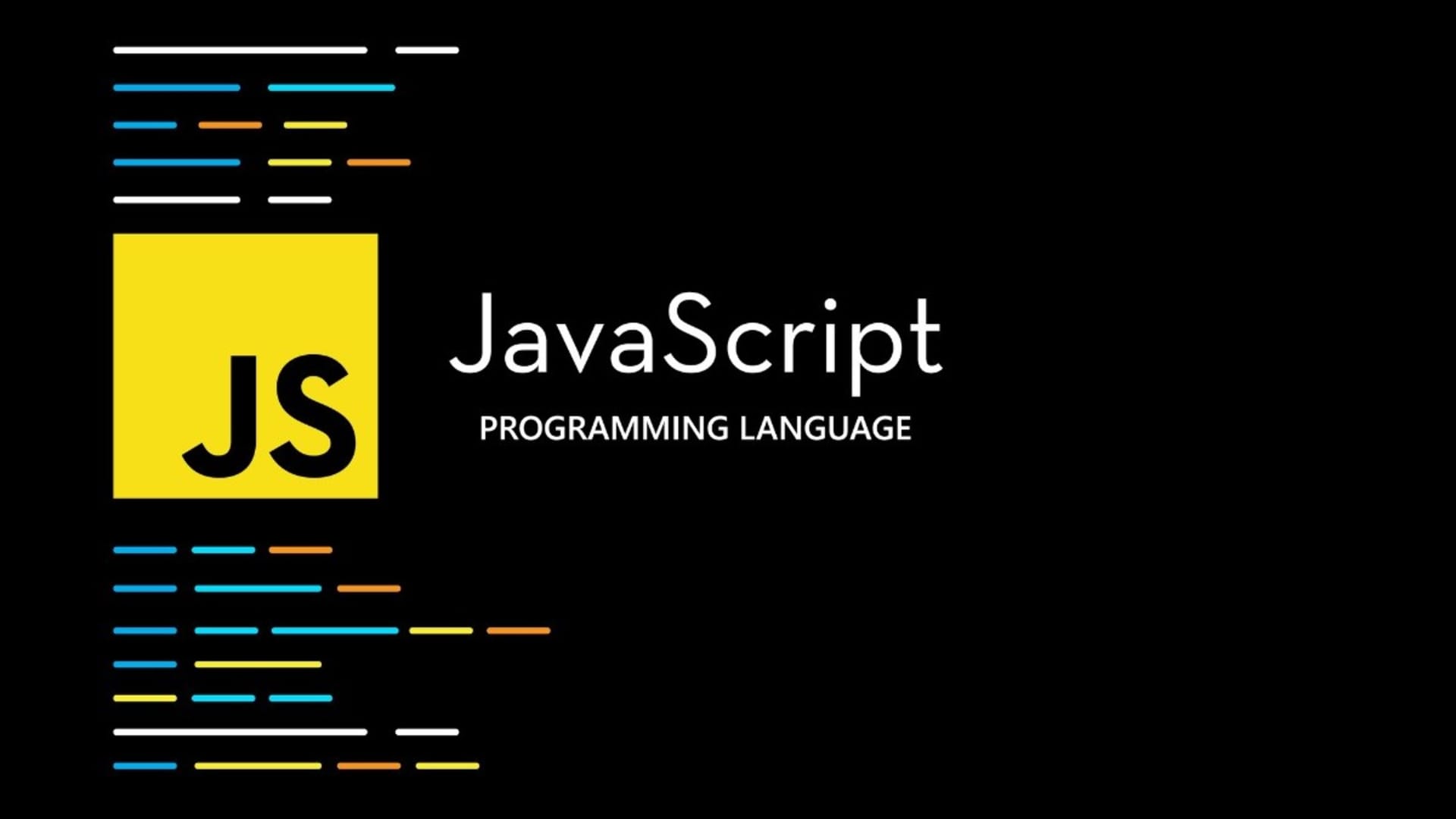- Home
- Technologies
- JavaScript
- Hire JavaScript Developers
Hire JavaScript Developers
Hire vetted JavaScript talent.
Our top 1% of tech talent has already undergone a rigorous vetting process. Get bilingual, nearshore JavaScript developers on your team within 2 weeks.
500+ companies rely on our top 1% tech talent.
No time to find the top talent yourself? Skip the hassle of recruitment.




The ultimate guide for hiring JavaScript developers
JavaScript remains a cornerstone of web development. Even after nearly three decades, it continues to enable dynamic, interactive, and responsive user experiences across myriad devices. Since businesses increasingly rely on web technologies to engage customers and drive growth, the demand for proficient JavaScript developers has only grown.
With extensive experience reviewing over 2.2 million applications annually, we pride ourselves on hiring the top 1% of LATAM tech professionals. Our expertise has enabled us to develop a comprehensive guide to help simplify the hiring process for you.
This guide delves into all of the crucial criteria and key skills that a JavaScript developer should have. It also covers interview questions with example answers to help you know what to look for in a developer. With these guidelines, you can find JavaScript developers who not only possess the necessary technical expertise but also share your company’s values and goals.
Before you start hiring
Project or time requirements
Get clear on your project’s needs and team requirements before hiring a JavaScript developer. Define the technical skills required, like proficiency in React or Angular. By doing so, you can target developers who have the right qualifications and fit your team dynamics.
Timeline and budget
Consider your project’s timeline and budget constraints and set clear expectations around deadlines and budget. The sooner you can focus on developers who can deliver high quality within your time and budget constraints, the easier the hiring process will be.
Niche experience in JavaScript nuances
Look for developers who have experience in JavaScript development. Developers with knowledge of the language can leverage its features for more efficient problem solving and better code. Also, prioritize candidates who have worked extensively with JavaScript in previous projects and contributed to solutions like progressive web apps (PWAs). Consider niche skills like experience with TypeScript, a superset of JavaScript.
Portfolio and references/testimonials
Evaluate candidates by reviewing their portfolios and asking for references or testimonials. A good portfolio will show various JavaScript projects and demonstrate a developer’s ability to handle different challenges. References and testimonials from previous employers or clients will give you insight into their technical skills, work ethic and reliability. This will all help you make a better hiring decision.
Experience in your preferred methodology
Make sure the developer is experienced in your preferred project management methodology, like Agile or Scrum. Familiarity with these approaches and the tools will streamline your project milestone by milestone. A developer familiar with your preferred methodology will integrate better into your team and existing workflows. Better team coordination will mean higher productivity.
18 skills every JavaScript developer should have
JavaScript is a powerful and versatile language that can run on both the client and server side, making it the foundation of modern web development. JavaScript allows developers to build responsive UI, handle events and manipulate the DOM. With frameworks and libraries like React, Angular and Vue.js JavaScript makes development more robust by providing tools for building scalable and maintainable applications. And with Node.js JavaScript can be used for server side development, so full stack development with one language.
A good JavaScript developer has both technical knowledge and soft skills to drive project success. They should be proficient in JavaScript frameworks and libraries, asynchronous programming, RESTful APIs and state management libraries for building complex applications. Beyond technical skills soft skills are important to integrate into team environments. By leveraging both technical and interpersonal skills JavaScript developers can contribute significantly to web development projects and overall growth of your organization.
Technical skills to look for in your ideal JavaScript developer
1. DOM manipulation
JavaScript developers should be able to manipulate the Document Object Model (DOM) to dynamically interact with and update web content. This skill allows them to build responsive UI and handle user events better. The result is a more interactive app and overall experience.
2. Asynchronous programming
Asynchronous programming allows developers to handle operations like data fetching, timers and user interactions without blocking the main thread. By understanding components and features like promises, async/await and callbacks developers can deliver smoother and more responsive applications.
3. JavaScript frameworks and libraries
Using frameworks and libraries helps JavaScript developers to speed up development and use pre-built components for various tasks. React for example allows them to build UI with reusable components. Angular allows them to build single page applications. Other common JavaScript frameworks, libraries and tools are Vue.js, jQuery, Node.js and Express.js.
4. Version control systems
Version control systems like Git allows developers to manage and track changes in their codebase. They are also important tools for collaborating with team members and maintaining a complete history of changes.
5. Package managers
Package managers allow JavaScript developers to manage dependencies therefore reducing manual work and maintaining consistent project setups across environments. Candidates should have experience with tools like npm, Yarn and pnpm.
6. Build Tools
By using build tools like Webpack and Babel and task runners like Gulp or Grunt JavaScript developers can automate and optimize the development process. Overall this means efficient code compilation, minification and deployment.
7. Testing
Candidates should have experience with testing to catch bugs early, ensure code reliability and maintain quality code. Developers should have knowledge of testing frameworks like Jest, Mocha or Jasmine and end-to-end testing tools like Selenium or Cypress.
8. RESTful APIs and AJAX
JavaScript developers should know RESTful APIs and AJAX to talk to web servers and fetch and send data asynchronously. These skills are essential for building dynamic and responsive web applications without full page reloads.
9. CSS and HTML
JavaScript, CSS and HTML are the triad of web development. Developers should have experience with CSS and HTML to structure and style web page content.
10. Node.js
Node.js allows developers to use JavaScript for server side development. By using the runtime environment JavaScript developers can do full stack development with one language. Candidates should also be familiar with frameworks like Express.js or Koa.
11. TypeScript
A superset of JavaScript, TypeScript adds static typing which identifies errors at compile time. This is important for large scale applications as it provides better tooling and refactoring support.
12. Performance Optimization
Optimization improves application speed, user experience, resource usage and overall user experience. Candidates should know optimization techniques for front-end performance like code splitting, lazy loading and minimizing reflows.
13. Security Best Practices
It’s important to know security best practices to protect applications from common vulnerabilities like cross-site scripting (XSS), cross-site request forgery (CSRF) and injection attacks. By following best practices developers can ensure user data is safe.
14. Cross-browser Compatibility
Developers should ensure applications work across multiple browsers and devices. Knowing cross-browser compatibility practices improves user experience, reduces bugs and allows the application to reach a wider audience.
Soft Skills to Look for in Your Ideal JavaScript Developer
15. Work Ethic
A strong work ethic is essential for JavaScript developers. It drives their commitment to achieving and exceeding project goals on time. Developers with a solid work ethic consistently deliver high-quality code, meet deadlines, and demonstrate a dedication to continuous improvement. This level of commitment is crucial for the success of web development projects and helps support a reliable and productive team environment.
16. Self-Motivation
Self-motivation is a key trait for JavaScript developers. It allows them to take initiative and drive projects forward without needing extensive supervision. This is especially important for teams that work remotely and/or asynchronously. A self-motivated developer is proactive in learning new technologies, solving problems, and staying updated with industry trends.
17. Decision Making
Effective decision-making skills allows JavaScript developers to make choices quickly and confidently, moving projects along to stay on track. Whether it’s selecting the right framework, optimizing code, or addressing performance issues, a developer who can evaluate options and make sound decisions will enhance the project’s success and keep it on pace.
18. Stress Management
Stress management is crucial for JavaScript developers who often have to work under tight deadlines or face challenging issues. The ability to remain calm and collected in pressured environments and high-stress situations ensures that developers can stay productive and deliver quality results on time. Developers with stress-management skills can better juggle multiple tasks at once, efficiently troubleshoot complex problems, and contribute to a better team atmosphere.
12 Questions to Identify Top JavaScript Developers
When interviewing JavaScript developers, it's important to ask questions that first assess the candidates' technical skills and knowledge. Employers will also usually conduct a coding test to further assess specific on-the-job knowledge.
The following set of questions aims to uncover not only the developer's technical knowledge but also their problem-solving abilities, teamwork, communication skills, and adaptability—all crucial traits for success in a collaborative environment.
Here are a few examples of technical interview questions:
1. How do you ensure code quality and maintainability in JavaScript projects?
I follow best practices like writing clean, modular, and well-documented code. I use linters like ESLint to enforce coding standards and identify potential issues as quickly as possible. Moreover, I implement comprehensive unit tests with frameworks like Jest and Mocha. These allow me to validate code functionality. Code reviews and continuous integration tools like Jenkins or GitHub Actions ensure that the codebase is clean, maintainable, and bug-free, too.
2. What strategies do you use to optimize the performance of JavaScript applications?
Performance optimization in JavaScript applications involves several strategies. I first start by minimizing and bundling JavaScript files. I do this with the help of tools like Webpack. I use asynchronous programming techniques, such as Promises and async/await, to improve application responsiveness. Plus, I use browser caching, lazy loading, and tree shaking to reduce load times and improve overall performance. I also leverage monitoring tools like Lighthouse and New Relic to help me identify and address any bottlenecks.
3. How do you manage state in complex JavaScript applications?
I use state management libraries like Redux or MobX to centralize and manage the application state. For component-level state management in React applications, I also use the Context API and hooks. I ensure state immutability and predictability by using middleware like Redux Thunk or Redux Saga, which handle asynchronous actions.
4. What is your approach to debugging JavaScript code?
Debugging JavaScript code involves a variety of tools and techniques. I rely largely on browser developer tools like Chrome DevTools. I use them to set breakpoints, inspect variables, and analyze the call stack. I use logging with console.log for quick checks, as well. However, for more in-depth debugging, I leverage tools like Visual Studio Code’s debugger and debugging extensions. Moreover, I write unit tests with frameworks like Jest to catch errors early on, and I use tools like Sentry to monitor and track runtime errors in production.
5. How do you ensure cross-browser compatibility in JavaScript applications?
Ensuring cross-browser compatibility involves thorough testing and adherence to web standards. I use tools like BrowserStack or CrossBrowserTesting. These allow me to test applications across different browsers and devices. I also follow best practices like feature detection with libraries like Modernizr, and I apply polyfills for unsupported features. I write CSS and JavaScript that conform to web standards and use transpilers like Babel to ensure compatibility with older browsers, as well. Of course, I also conduct regular testing and validating the application on various browsers to ensure a consistent user experience across platforms.
6. How do you handle asynchronous operations in JavaScript?
I handle asynchronous operations in JavaScript by leveraging callbacks, Promises, and async/await. Callbacks are functions passed as arguments to other functions to execute once an operation is finished. Meanwhile, promises allow chaining and better error handling. And the async/await syntax, built on top of Promises, offers a more readable and concise way to write asynchronous code. I also tap into async libraries like Axios for HTTP requests and manage complex asynchronous flows with tools like RxJS.
7. How do you implement security in JavaScript applications??
Implementing security in JavaScript applications involves several practices to protect against common vulnerabilities, such as secure coding practices. I do this by sanitizing and validating user inputs to prevent XSS (Cross-Site Scripting) attacks. I use HTTPS to encrypt data transmitted between the client and server. I also implement Content Security Policy (CSP) to help mitigate XSS attacks. For backend security, I use libraries like Helmet to set secure HTTP headers. And, last but not least, I regularly update dependencies to patch known vulnerabilities and use tools like npm audit to identify and fix security issues in third-party packages.
8. How do you handle errors and exceptions in JavaScript applications?
To handle errors and exceptions in JavaScript development, I use try-catch blocks to catch synchronous errors and Promise.catch or async/await with try-catch for asynchronous errors. I implement global error handlers to catch unhandled errors and log them for debugging purposes. And I use error-tracking tools like Sentry and Rollbar to help me monitor and report runtime errors in production. I also ensure that user-facing error messages are informative without sacrificing any sensitive information and keep a comprehensive log of issues.
9. Can you describe a challenging project you worked on and how you overcame the difficulties?
Problem-solving skills are essential for navigating challenges with development. This question helps you understand how the candidate deals with obstacles in their work.
10. How do you stay updated with the latest developments in JavaScript?
In a constantly evolving technology landscape, it's important for you to get a sense of how the candidate stays abreast of changes in the field.
11. Describe a time when you had to work as part of a team to complete a project. What was your role and how did you contribute?
Collaboration is a mandatory part of any software development life cycle. This gives you insight into the developer's ability to work on a team.
12. How do you prioritize and manage your tasks when working on multiple projects simultaneously?
This question allows you to observe the candidate's prioritization skills and ability to juggle important tasks simultaneously.
Frequently Asked Questions
What should I look for in a JavaScript developer?
When you're hiring JS developers, consider both technical and interpersonal skills. Look for a strong understanding of core concepts, such as experience with frameworks like React, Angular, or Vue.js and proficiency with asynchronous programming. You should also look for soft skills like problem-solving, collaboration, and communication.
How important is experience with specific frameworks for JavaScript developers?
JavaScript programmers may need to have experience with specific frameworks, depending on the project requirements. For example, if you're creating dynamic web applications that require responsive user interfaces, the developer should have experience with React.
What is the difference between a front-end and a full-stack JavaScript developer?
The difference between a front-end JavaScript and full-stack developer is that a front-end developer focuses exclusively on the client side, while a full-stack developer handles the server side as well.
How can I assess a developer’s JavaScript skills?
The best JavaScript developers have extensive technical knowledge and interpersonal skills. You can assess their qualifications through technical interviews, coding tests, portfolios, referrals, and testimonials. Consider administering practical tests that mimic real-world tasks as well.
How long does it typically take to hire a JavaScript developer?
The process for hiring JavaScript developers can vary significantly depending on your team and project requirements and other factors. Typically, it takes between a few weeks to several months.
You can shorten the hiring timeline by partnering with an outsourcing company or working with freelance JavaScript developers. Using these models, you can usually recruit developers in a relatively short period.
Can JavaScript developers work remotely?
Yes, you can hire remote JavaScript developers. Many companies employ developers from different parts of the world, giving them access to a larger talent pool and ensuring greater flexibility.
How do I find the right JavaScript developers for my project?
To find the right JavaScript developers for your project, consider outsourcing JavaScript development to a reputable company. Outsourcing can provide access to a wider talent pool, cost efficiencies, and flexibility in scaling your team as needed. Clearly outlining your project requirements and expectations will help ensure you find the best talent for your needs.

- Hire JavaScript Developers
How Businesses Can Overcome the Software Development Shortage
BairesDev Ranked as one of the Fastest-Growing Companies in the US by Inc. 5000











